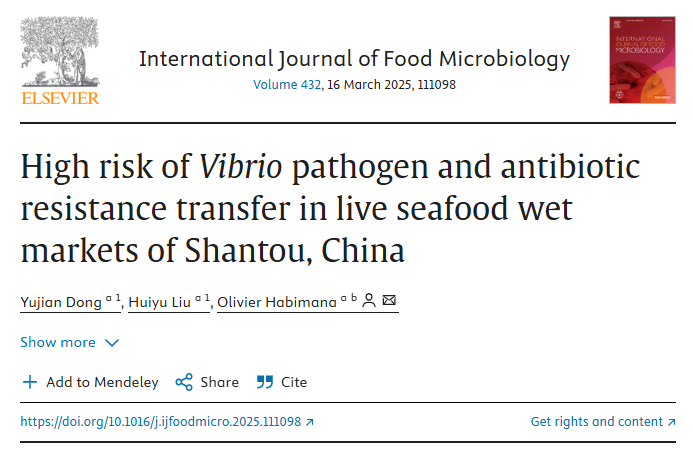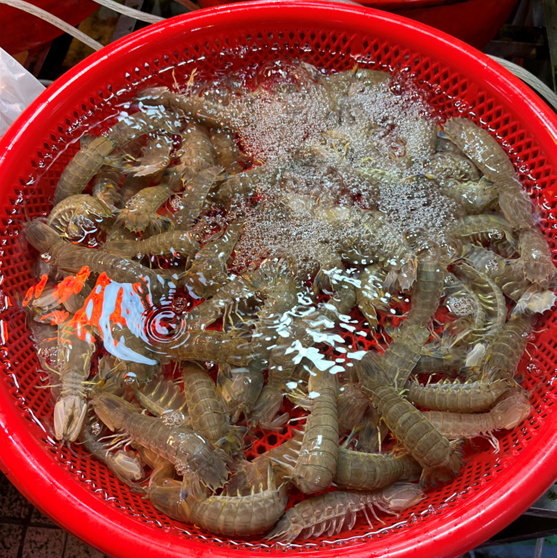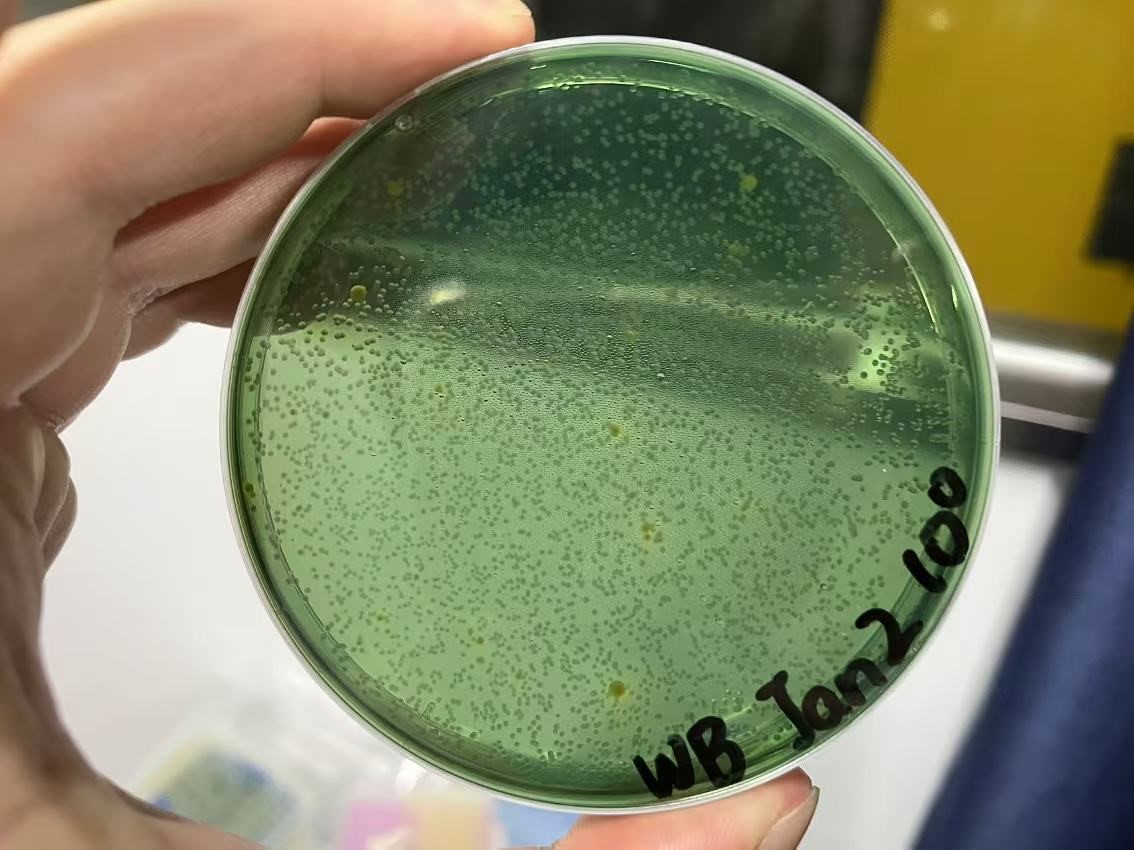PostTime:3/17/2025
Seafood is a cornerstone of Shantou's culinary culture, with marinated raw seafood being a particular favorite among diners. However, its enticing flavors come with significant health risks that cannot be ignored. Liu Huiyu and Dong Yujian, students from Cohort 2020 of Biotechnology and Food Engineering Program at the Guangdong Technion - Israel Institute of Technology (GTIIT), have taken on the research of addressing these risks to enhance the safety on the dining tables.
Under the guidance of GTIIT Assoc. Prof. Olivier Habimana, the students conducted in-depth research at the Shantou Seafood Market, and co-authored a paper on live seafood markets and their safety protections on the International Journal of Food Microbiology. The paper reveals the hidden health risks associated with consuming raw or undercooked seafood, and provides scientific evidence for improving hygiene practices in seafood markets.

During the summer vacation of their junior year, the students collected samples of live Japanese mantis shrimp, along with water and biofilm samples from the tanks where the shrimp is typically kept from local wet markets and conducted experiments using high-throughput DNA sequencing technology. "Through this process, we mastered the use of bioinformatics software, enabling us to analyze the vast sequencing data to identify differences and unique characteristics among the samples," they explained.


Their findings revealed that the shrimp samples pose a direct risk of foodborne illness if the shrimp is not cooked properly. Meanwhile, high levels of antibiotic resistance genes were found in the water and biofilm samples. This indicates a significant risk of these genes transferring to the shrimp, making infections harder to treat. The study also paid close attention to Vibrio bacteria – a group frequently linked to seafood-related illnesses. The bacteria in the study often had genes that made them resistant to many different antibiotics. The storage tanks and biofilms in which seafood is kept were acted as reservoirs for these resistance genes.
The team proposed a series of solutions, including enhancing the sanitary management of seafood storage environments, optimizing the water quality for seafood storage, conducting regular thorough tanks cleaning and disinfection, and improving seafood handling processes to further elevate the safety of seafood products. Additionally, proper handling and cooking methods safeguard consumers' health as they relish the delights of seafood.
"This was our first independent experiment design and our first publication as lead authors. This experience has greatly boosted our confidence and passion for scientific research!" the students shared. They are eager to continue their research to develop practical solutions that improve the safety of wet markets and ensure public health.
Assoc. Prof. Olivier Habimana, the corresponding author of the article, commended the students on their inaugural scientific endeavor. He emphasized the critical importance of their work in safeguarding public health and food safety. "It showcases their dedication to rigorous scientific research and the high-quality work at GTIIT," he stated.
The International Journal of Food Microbiology is a renowned international journal in the field of food science and technology, with a latest impact factor of 5. It is classified in Q1 by the Web of Science (WOS) journal rankings and is recognized as a top-tier journal (TOP) by the Chinese Academy of Sciences (CAS) SCI journal rankings.
Link of the article: https://doi.org/10.1016/j.ijfoodmicro.2025.111098
Text/Photos: GTIIT News & Public Affairs, Olivier Habimana's team
© GUANGDONG TECHNION-ISRAEL INSTITUTE OF TECHNOLOGY | 粤ICP备17036470号
